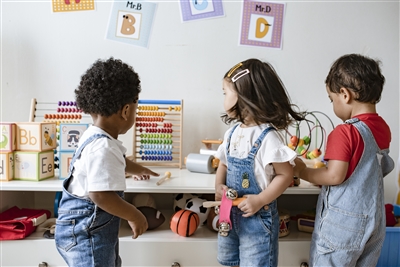Schools urged to prioritise playtime when schools reopen

All over the world countries are making steps to release their populations from the corona virus lockdown, with governments having to make the difficult decision over which sectors of their workforce should be prioritised in order for their economies can get back on track.
At some point soon schools will have to open if people are going to get back to work. Most parents rely on their children being in the care of teachers, who indeed act in loco parentis during the working day. While schools are closed it will be largely impossible to for most people to return to employment, which is why it is so vital that children are able to return to classes, with all safety conditions being met of course.
Though the lockdown has given parents the chance to spend more time with their children, many of them, especially those of primary school age, may be missing going to school. As a father of three children, I can remember their time at primary school, and how barely a weekend went by without a party at one of their friends` homes. One weekend I remember driving my three children to a total of five different parties! For most children these years are a cavalcade of social activities, with three breaks a day where they can play with their friends, along with weekends where they may have activities planned with their peers.
The lockdown has of course brought an abrupt end to this lifestyle, and it is understandable that some children may have found it hard to adjust. It has been difficult enough for the majority of adults, so one can only imagine the hardships children have had to contend with, especially if they don`t have a garden, of if their parents` relationship is coming under strain.
One might conclude that a return to school would be just what many children need - but some mental health charities have cautioned that the sudden change in routine, going straight back into a regimented classroom learning environment, could be jarring for some children. A team of psychologists have called upon ministers for playtime to be prioritised when the schools reopen, and are also suggesting that children are permitted to play with their peers unimpeded by any social distancing restrictions, as long as this accords with a `risk-benefit approach.`
It is hard to imagine how primary school children would be able to adhere to strict social distancing, especially if they haven`t seen their friends for 2 months. A natural impulse would be for them to run towards each other, obeying the most innocent impulse: for friends to be close. To be told that this is not permitted could be difficult, especially if it is for a reason they do not fully understand. Helen Dodd, the professor of child psychology at Reading University has said that the sudden change from being stuck at home, to being back in the classroom, could be a shock.
`Returning to school after a long period at home will be challenging for lots of children. It will be especially challenging if they are expected to remain 2 metres away from their friends.`
`We ask that, once it is safe to do so, the loosening of lockdown is done in a way that allows children to play with their peers, without social distancing, as soon as possible. This may mean that close play is only permitted in pairs or small groups or within social bubbles that allow repeated mixing with a small number of contacts.`
A panel of experts specialising in child mental health and development have said that engaging in play activities will alleviate the potentially dangerous levels of stress children might experience upon returning to school. The panel, who are led by experts at a number of universities, including the University of Cambridge, University of Sussex and University of Reading, wrote a shared letter to the education secretary, Gavin Williamson, in which they stressed the vulnerability of children during this time:
`At this time, many children`s emotional health will be suffering due to loneliness and isolation. As experts in children`s mental health and development we urge the government to prioritise children`s social and emotional wellbeing in all decisions related to the easing of lockdown restrictions and the reopening of schools.`
Their concerns are mainly for children of primary school age, but there are a lot of open questions as to the epidemiological status of this age group in the pandemic: are the vast majority of them asymptotic? can they act as `super spreaders?` These factors will obviously be of importance when schools reopen. Social distancing measures will be easier to enforce in the classroom, with restricted numbers allowed in each lesson, and desks spread the requisite distance apart. Enforcing distancing guidelines will certainly be more difficult during playtime, as it is hard to image how children could be made to keep at least two metres apart.

 Add a Comment
Add a Comment